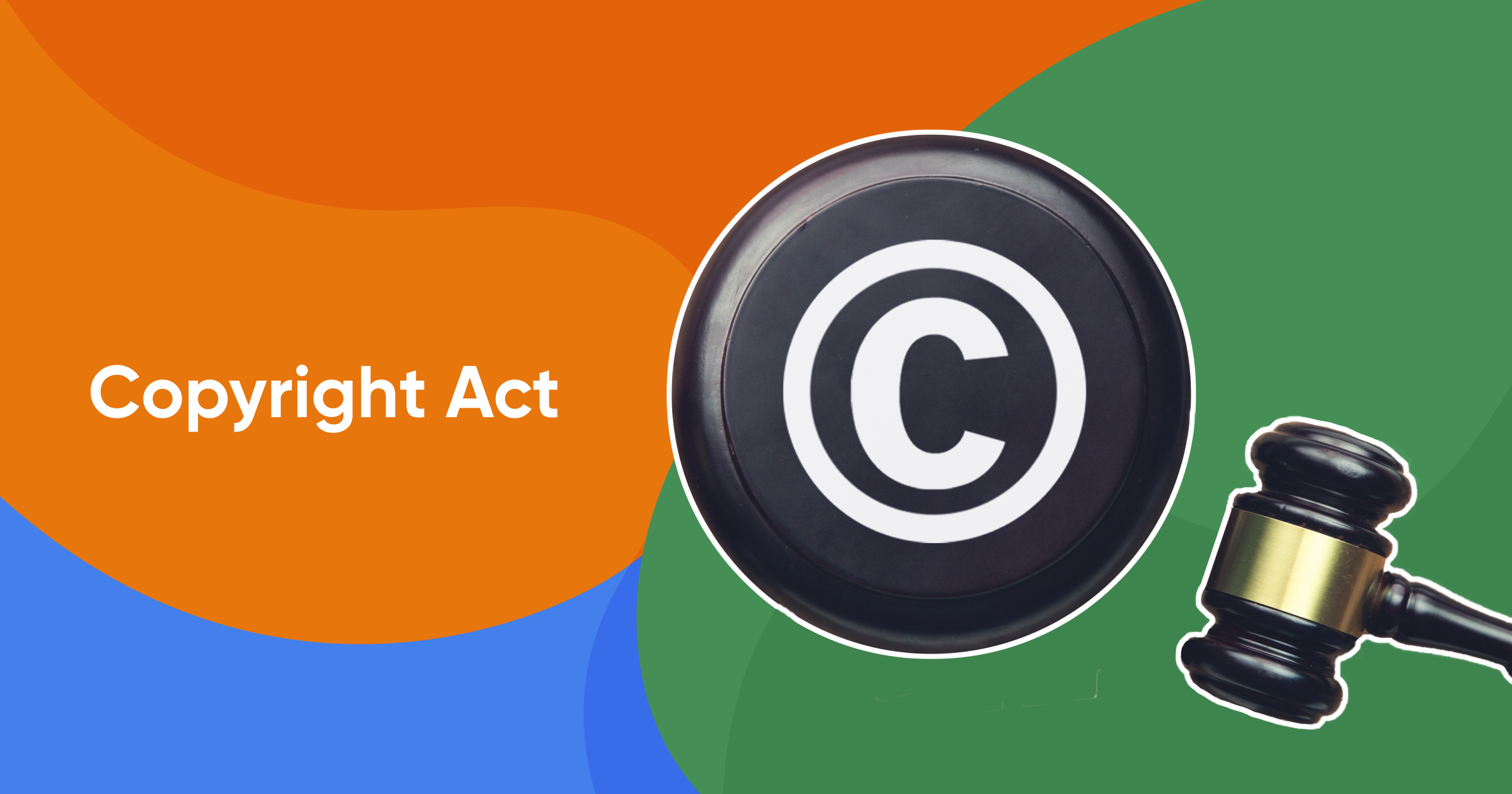Resources
Whats So Fair About Fair Use
What's So Fair About Fair Use?
Lindokuhle Mkhize
10 August 2023 • 6 min read

Table of contents
Small business owners, are you familiar with fair use and copyright registration? What about all things related to the Copyright Act? Sometimes, these topics seem like a legal maze and overwhelm most of us. But fear not because I'm here to help you navigate it all.
So, what's so fair about fair use?
Understanding the fair use doctrine
Let's start by understanding fair use and its role in using copyrighted material. The fair use doctrine allows for limited use of copyrighted material. The great part is you don't need to ask to use these works. It applies to platforms like criticism, education, research, or news reporting.
It's like a magic wand that allows you to spice up your marketing without stepping on anyone's toes. But beware of the legal red tape that comes with fair use.
Understanding the commercial nature of use
The "commercial nature of use" applies when you use someone else's work for profit. If your use is promoting or selling products or services, it can impact the fair use analysis. Courts pay close attention to this type of use and proving a fair use defense may be difficult. Think about the commercial nature of your use when deciding on fair use.
If you plan on profiting from it, there may be stricter limits on what makes up fair use.
For example: Say a small business owner wants to use a copyrighted song for their marketing ad. The "commercial nature of use" reduces the likelihood of fair use. The best solution would be to ask for usage or licensing rights from the owner/publisher. It sounds like admin, but it's less costly than a copyright infringement lawsuit.
Navigating nonprofit educational purposes
Nonprofit educational purposes refer to using copyrighted material in an educational context. This law applies to using creative material to teach and educate. Fair use gives nonprofit educational purposes special treatment for promoting learning.
Using it in online classes or classrooms is okay. Educational presentations that promote the information of the works count as well.
For example: Think of an NGO hosting a workshop on photography. The workshop has copyrighted images on display for educational purposes. Part of the session will be discussing composition techniques and artistic styles. In this case, as long as the display relates to the educational workshop aim, it may constitute fair use.
It's important to remember how tricky it is to fair use, even for educational purposes. There are three main criteria to check if fair use applies, such as:
- The nature and extent of the material used
- The transformative value
- The potential market impact
Not to toot our own horn, but we have some copyright attorneys to help you avoid any legal hassles. Or you could research official guidelines from copyright authorities like the USPTO.
Fair use in copyright owner's ability
Now, let's talk about copyright registration because you know what they say - it's better to be safe than sorry!
Registering a copyright through online copyright registration platforms gives you extra protection. The USPTO copyright registration system also provides legal protections under the Copyright Act.
Safeguard your creative genius earlier rather than later. You'll have a more airtight "fair use" defense in case of any copyright infringement.
Fair use analysis
When it comes to fair use analysis, it all boils down to the context and the circumstance of the usage. Questions like "What was the nature of the copyrighted work?" and "What role does the character of the use play?" impact the analysis.
Fictional works, like novels or screenplays, differ from factual works like biographies. So, learning more about a desired copyrighted work can help you in the long run as a small business owner.
So, how does this fair use thing work? Well, it all boils down to four factors that make even the most seasoned legal eagles scratch their heads:
Factor 1: Purpose and character of the use
If your usage falls under the following categories:
- nonprofit educational purposes
- news reporting
- critiques commentaries
…The fair use doctrine might be your "Get outta jail free" card.
But, if you intend to make some money off of something you didn't create, think again. Fair-use defense won't have your back this time. Remember, fair use is more forgiving when the purpose is transformative. It should always provide a benefit to the public. So tread lightly to ensure you stay well within its boundaries.
Here's a pro tip: Whether you're planning to file a copyright, register a copyright online, or explore fair use tactics, consulting with a professional specializing in copyright law is always wise. They have the expertise and knowledge to guide you through the Copyright Act and ensure you're on the right path to fair and legal practices.
Factor 2: Nature and character
Is the original work an epic fictional tale or an article of fact? Published or unpublished? These details matter! Making copies of unpublished fictional works isn't fair use.
Factor 3: Amount and substantiality
Here's where fairness comes into play. Take what you need, but don't go wild. If you copy just enough to create your own work without stealing the heart and soul of someone else's creation, your copying might be considered fair use. But swiping the whole enchilada? Not the fairest move.
Factor 4: Evaluating potential market impact
This one's all about playing fair in the market domain. Will your copying harm the original work's market value? Are you swimming in the same pool or splashing around in a completely different pond? How your copying impacts the potential market is a big deal. So, proceed with caution.
When considering fair use, take into account the potential impact on the market value or potential market for the copyrighted material. Ensure your usage does not undermine the original creator's ability to profit from their work.
Handling creative works
Creative works, including artistic, literary, and intellectual expressions, are protected by copyright law. Understand that using others' creative works without permission may infringe on their rights.
Distinguishing fair works
Fair works are those that meet the criteria of fair use, justifying their usage without infringing on copyright. Ensure your usage falls within the boundaries of fair use and respects the original creator's rights.
The importance of fair dealing
Fair dealing provisions allow limited use of copyrighted material without permission, primarily for criticism, review, or news reporting. Adhere to fair dealing principles when utilizing copyrighted material.
Asserting fair use defense
If your usage meets the fair use criteria, confidently assert a fair use defense when challenged. Understand your rights and be prepared to provide a strong rationale for your usage.
Fair use for news reporting
Fair use in news reporting is determined by factors like the amount of material used, how it's transformed within the report, and its impact on the original work's market. Journalists should use their professional judgment and follow ethical guidelines when incorporating copyrighted material in their reporting.
It can also be helpful to consult legal experts or media organizations to understand fair use in the context of news reporting.
What's so fair about fair use? Making sense of it.
By understanding copyright and fair use, small business owners can protect their creative works while respecting the rights of copyright owners. File a copyright for your original creations, understand the principles of fair use, and confidently navigate the complex landscape of copyright law.
Ensure your business thrives within legal boundaries, promoting respect for intellectual property.
FAQs
Why is fair use so important?
It’s acceptable to use other people's writing in papers, quote texts for literature analysis, and rearrange text and information to create search engines as examples of fair use.
Why is fair use fair?
According to the legal principle of "fair use," using intellectual property without the owner's consent is permitted in some situations.
What are the 4 reasons for fair use?
The purpose and nature of the use constitute factor one. The second factor is the type of protected work. The size or proportionality of the portion used is the third factor. And the final factor is how the use affects the work's potential market or value.
AUTHOR
Lindokuhle Mkhize, a skilled creative copywriter and content lead at Trademarkia, brings a wealth of experience in driving innovation and managing teams. With previous success in starting and growing the Innovation and Marketing department at her former creative agency, Lindokuhle boasts expertise in leadership and delivering compelling content. Based in South Africa, Lindokuhle's work focuses on key themes of creativity, effective communication, and strategic marketing.
Related Blogs

What is a provisional patent?
12 June 2024 • 5 min read

How to Know if a Song Is Copyrighted | T...
06 June 2024 • 9 min read

What Is the Difference Between Copyright...
06 June 2024 • 8 min read

Can Copyright Be Renewed? Understanding ...
31 May 2024 • 7 min read

Is Swiftie Trademarked? (Let's Explore)
28 May 2024 • 3 min read
